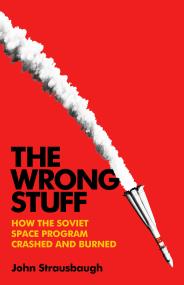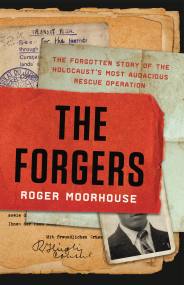The CIA
An Imperial History
Contributors
By Hugh Wilford
Formats and Prices
Price
$19.99Price
$25.99 CADFormat
Format:
- ebook $19.99 $25.99 CAD
- ebook $19.99 $25.99 CAD
- Hardcover $35.00 $45.00 CAD
Also available from:
As World War II ended, the United States stood as the dominant power on the world stage. In 1947, to support its new global status, it created the CIA to analyze foreign intelligence. But within a few years, the Agency was engaged in other operations: bolstering pro-American governments, overthrowing nationalist leaders, and surveilling anti-imperial dissenters at home.
The Cold War was an obvious reason for this transformation—but not the only one. In The CIA, celebrated intelligence historian Hugh Wilford draws on decades of research to show the Agency as part of a larger picture, the history of Western empire. While young CIA officers imagined themselves as British imperial agents like T. E. Lawrence, successive US presidents used the covert powers of the Agency to hide overseas interventions from postcolonial foreigners and anti-imperial Americans alike. Even the CIA’s post-9/11 global hunt for terrorists was haunted by the ghosts of empires past.
Comprehensive, original, and gripping, The CIA is the story of the birth of a new imperial order in the shadows. It offers the most complete account yet of how America adopted unaccountable power and secrecy abroad and at home.
Genre:
-
A Times Best History Book of 2024
A New Yorker Best Book of 2024 -
“An adroit new overview.”New Yorker
-
“[The CIA] offers a sweeping history covering the agency’s beginnings and its role in expanding the American empire.”New York Times
-
“An important and engrossing new book – one that must be read by anyone interested in intelligence and national-security affairs today.”Telegraph (UK)
-
“Entertaining, fact-filled and providing thoughtful context… Wilford also offers a lively and original thesis – that the CIA is essentially a continuation of the tradition of European intelligence services, and that Cold War spying had much in common with the colonial era… an absorbing read that adds much to our understanding of the CIA.”Spectator (UK)
-
“Drawing on declassified CIA archives, Wilford lets the secret agents reveal their secrets. He quotes them at length, giving an intimate feel to an otherwise panoramic history… makes for gripping history that also informs the present.”Sunday Times (UK)
-
"Were the CIA the true heirs to the British Empire? It’s a nicely provocative argument, and one that Hugh Wilford develops with impressive enthusiasm."Times (UK)
-
“…Kudos are due to Hugh Wilford, who has written not just a compelling history of the CIA, but one that places it in the context of previous colonial-era spying operations, especially those of the British Empire.”Air Mail
-
“An excellent and very readable history of the CIA.”Article
-
“A new and provocative twist on the history of CIA covert action.”The Cipher Brief
-
“An engaging read for those looking for an introduction to some of the agency’s more colorful characters and involvement in shaping world events from the Cold War through the Global War on Terror.”Journal of Intelligence History
-
“Thoughtful, fair-minded, and well supported with a wealth of documents, memoirs, and oral histories… [The CIA] should serve as a guiding example of how to use a new theme to reveal insights that can transform our understanding of the CIA, all the while ensuring that intelligence studies can have its place at the table.”Engelsberg Ideas
-
“[A] vibrant account… This eye-opening slice of American history should not be missed. ”Publishers Weekly (Starred)
-
"Invaluable."Booklist (Starred)
-
“Wilford’s nuanced excavation of how the imperial style shaped the early CIA is the most provocative and rewarding part of the book… Wilford is an excellent profiler, and the book is rich in characters… Wilford deftly sketches their intellectual links to European imperialism in just a few pages.”Los Angeles Review of Books
-
“Wilford is a knowledgeable guide to the history of the CIA.”Kirkus
-
“Vivid and interesting.”Washington Independent Review of Books
-
“The CIA is often portrayed as a quintessentially American institution, but Hugh Wilford shows it is also a product of European imperial history. By delving into the life stories of key officers, he sheds new light on a complex and sometimes terrifying story. Placing the CIA in its global context allows us to understand this shadow world in a completely new way.”Stephen Kinzer, author of Poisoner in Chief
-
“Wilford’s new history of the CIA is a spectacular achievement: learned, thoughtful, frequently surprising, often wryly funny, always gloriously readable. It is a serious work of scholarship, casting new light on dramatic episodes from the Iranian coup in 1953 to the assassination of JFK. But it is also a brilliant portrait of the men who lived in the shadows, from their gilded New England schooldays to the sweltering streets of war-torn Saigon. It’s the best book yet from a supremely accomplished historian—and I loved it.”Dominic Sandbrook, cohost of The Rest is History podcast and author of Mad As Hell
-
“The CIA is a pleasure to read, an excellent example of erudition lightly worn. Wilford shows that when CIA leaders found anti-imperial ideas did not fit their requirements, they found a new vocabulary in the very language of imperialism that their nation so often rejected. His interpretation goes far beyond the crude and opportunist assertion that British tuition facilitated the creation of the CIA.”Rhodri Jeffreys-Jones, author of A Question of Standing
-
“This elegantly written history places the CIA within the context of American empire, and, in the process, reshapes our understanding of US intelligence history. With lively prose and memorable characters, Wilford has crafted a narrative that will appeal to scholars and to general readers alike. It’s simply superb.”Kathryn Olmsted, author of Real Enemies
-
“Wilford has again exposed another layer of the CIA’s shrouded history by tying it to the history of the US empire. This innovative and rigorously researched merger internationalizes the agency’s history even as it enhances understanding of its behavior and image. Wilford excavates the foreign and the domestic, people and places. The result is a different kind of survey that reveals a different kind of CIA.”Richard H. Immerman, former assistant deputy director of national intelligence and author of The Hidden Hand
-
“This is an ambitious and original book. It is not only richly informative but also provocative and insightful. Filled with fascinating and brilliantly researched detail, it shows how the rise of the CIA is intertwined with America’s winding path to globalism.”Richard J. Aldrich, author of GCHQ
-
“The history of the CIA can seem like an exceptionally American story. But by placing it in the context of the intelligence services of European empires, Wilford reveals surprising continuities and gives us a new way of thinking about US power on the global stage. Through a series of compelling portraits, this book captures the emotions, the attachments, and the thinking of the men who sought to shape global politics. An essential contribution to the history of American intelligence and to debates about American empire.”Patrick Iber, University of Wisconsin, Madison
-
“In this fast-paced, absorbing, and insightful narrative, Wilford offers a bracing new interpretation of the Central Intelligence Agency. By focusing on the backgrounds, biographies, and career trajectories of some of the agency’s most legendary, and controversial, figures, Wilford shows how the motives, methods, and organizational ethos of the CIA were shaped profoundly by the European experience of empire. Whether engaging in intelligence gathering, covert action, or counterinsurgency, the CIA, Wilford argues, too often followed a colonial-era script, with fateful consequences for the peoples of Asia, Africa, and Latin America, and major implications for the United States itself. A story packed with intrigue, rivalry, and scandal, this is history at its bold and provocative best.”Simon Hall, author of Ten Days in Harlem
-
“The CIA is one of those rare and irresistible publications which transform how you think about its subject matter. Wilford, author of several critically acclaimed books about the secret world of intelligence, blends persuasion with provocation to make the case that the CIA is—and always has been—a servant of American empire, albeit with little self-awareness that it performs this role. The cast of characters is a rogue’s gallery of swashbuckling spies and saboteurs inspired by the imperial tales of novelist Rudyard Kipling and the real-life exploits of Lawrence of Arabia. In charting how this band of imperial adventurers looked to covertly redraw the map of the world, especially in the global south, this magnificent book will change our understanding of the history of the CIA and American foreign relations.”Christopher Moran, author of Company Confessions
-
“Wilford’s new book places the CIA in its imperial setting—a covert empire but one deeply, subtly, and violently felt, especially in the Global South after 1945. But it does more by bringing the CIA’s history up to the present, looking at its roles in the global war on terror and the hyper-rivalries between the USA, Russia, and China in an increasingly fractured world system. The past lives but it needs to be brought to life—and Wilford has shown once again that he is a master of that particular art.”Inderjeet Parmar, author of Foundations of the American Century
- On Sale
- Jun 4, 2024
- Page Count
- 384 pages
- Publisher
- Basic Books
- ISBN-13
- 9781541645905
Newsletter Signup
By clicking ‘Sign Up,’ I acknowledge that I have read and agree to Hachette Book Group’s Privacy Policy and Terms of Use







